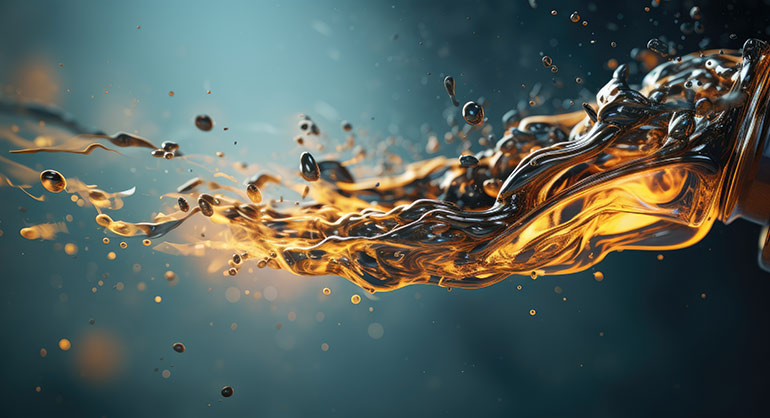By Josh Cosford, Contributing Editor
Forever. It should last forever. Thanks for reading, and come back next week for more YouTube Shorts. I kid, of course, although there is always truth in comedy because you should treat your oil as your forever fluid. Of course, simply showering your hydraulic fluid with love will not guarantee a lifelong relationship. However, when all the proper maintenance and care are offered to your hydraulic system as a whole, you can expect your hydraulic fluid to last the life of the machine.

Of course, I’m not so extreme an optimist as to believe all oil in all conditions will age like an Okinawan. Like any Blue Zone centenarian, age healthfully requires conscious thought and effort. Hydraulic fluid must be kept clean, cool and dry to prevent potential side effects, and regular testing elucidates any potentially unmanageable concerns.
Clean oil, at first, may seem to benefit only the pumps, valves and actuators that constitute most of your hydraulic system. But consider the future state of any hydraulic system making do with poor filtration — it’s a place where sludge, oxidation and erosion lead even more self-generated contamination. Picture excessive particles acting like a honing fluid that erodes metal, increasing clearances and gaps and reducing machine efficiency while increasing heat.
We’ve established that clean oil is good, so how clean is clean? Let’s just say that there is no such thing as oil that’s too clean. Always use the finest and largest filtration system you can afford and have the space to install. It’s been proven that clean oil is a self-reinforcing concept that reduces the particle generation rate, thereby extending your oil’s life.
You also want to ensure that your oil remains cool, and by “cool,” I mean optimal operating range. What is optimal depends on the oil type, quality, and application. What’s essential is preventing overheating. The rate of oil oxidation increases exponentially as the temperature rises, and the useful life of oxidized oil is precisely zero, as its actual structure is adulterated into ketones, acids and aldehydes. Should oxidation veer out of control, conditions as bad as sludge and varnish may require replacing significant components in addition to the fluid itself.
Oxidization is natural and unpreventable, but the oxidation rate is slowed down through additives that can be monitored with regular oil testing or even sophisticated TAN (Total Acid Number) sensors. Should the antioxidant additives degrade over time, they can be replaced, helping to ensure that your fluid life is extended indefinitely.
Keeping your oil dry also prevents hydraulic fluid morbidity, as water increases oxidation, hydrolysis and microbial growth. We’ve discussed oxidation but hydrolysis creates similar effects and the creation of alcohols, acids and other forms of degradation. With excessive water and a warm, cozy environment, bacteria, yeast and fungi can sometimes proliferate, accelerating oil death while often creating unpleasant odors.
Sometimes, hydraulic fluid may be reconditioned back to life, but the process is often expensive and justified only for high reservoir volume or expensive fluids. Even if you follow my recommendations, there’s still no guarantee of everlasting life. However, when you are thoughtful about fluid maintenance by keeping your oil clean, cool, and dry, you can expect a long, reliable life of not only the fluid but also the rest of the system in general.
Filed Under: Components Oil Coolers, Fluid Conditioning, Fluids, Sealing & Contamination Control Tips, Technologies